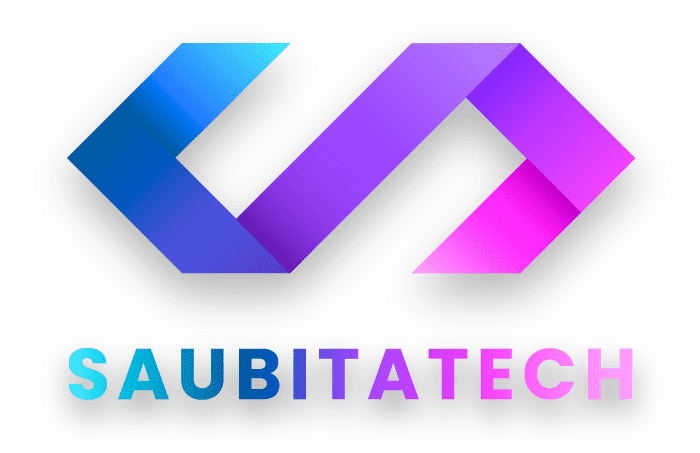In today’s fast-paced business environment, companies are increasingly turning to advanced technologies to streamline their recruitment processes. One such technology is Artificial Intelligence (AI), coupled with Data Analytics. These technologies are revolutionizing Recruitment Process Outsourcing (RPO) by making smarter hiring decisions, improving efficiency, and minimizing human bias.
This blog explores how AI and Data Analytics are transforming RPO and how businesses can leverage them to make more informed, data-driven hiring decisions. Additionally, we’ll look into some essential tools that integrate these technologies to elevate the recruitment experience.
Understanding Recruitment Process Outsourcing (RPO)
Recruitment Process Outsourcing (RPO) is a business practice where an organization outsources part or all of its recruitment functions to an external provider. RPO providers take over the responsibility of sourcing, recruiting, screening, interviewing, and hiring candidates.
By leveraging AI and data analytics, RPO providers can offer a more strategic approach to recruitment, using automation and data-driven insights to make faster, smarter hiring decisions.
The Role of AI and Data Analytics in RPO
Incorporating AI and Data Analytics into RPO processes introduces several key benefits that empower organizations to enhance their hiring outcomes. Below, we explore how AI and data analytics are reshaping recruitment.
1. Improving Candidate Sourcing
AI tools can help RPO providers automate and optimize the candidate sourcing process. Traditional recruitment often involves manually searching through resumes and job boards to find the best candidates. However, AI-powered platforms can quickly sift through vast amounts of data to find candidates with the right skills, experience, and cultural fit.
By analyzing data from resumes, social media profiles, and job boards, AI can identify qualified candidates that might have been overlooked. Additionally, data analytics helps recruiters understand which sourcing channels are most effective in attracting top talent, ensuring a more strategic approach.
2. Enhancing Candidate Screening
One of the most time-consuming aspects of recruitment is screening resumes and applications. AI can significantly speed up this process by automatically scanning resumes and applications for keywords, relevant skills, and qualifications. This reduces the risk of human error and helps RPO providers shortlist the best candidates more efficiently.
Beyond keyword matching, AI can analyze patterns in candidates’ past hiring data to predict whether a particular candidate would be a good cultural fit for the organization. Data analytics further empowers this process by providing insights on how long candidates typically stay in a role, their likelihood of success, and their potential impact on the company.
3. Eliminating Bias in Hiring
Unconscious bias is a major issue in traditional recruitment processes. AI and data analytics can help reduce bias by focusing on objective data, such as skills, experience, and qualifications, rather than subjective factors like age, gender, or ethnicity.
AI-powered algorithms are trained to analyze large datasets and identify correlations between candidate attributes and job performance. This leads to more equitable hiring practices and helps companies build diverse teams based on merit rather than bias.
Seamless Recruitment: Integrating RPO with Your Internal HR Team

4. Improving Candidate Engagement
AI-driven chatbots and virtual assistants are increasingly being used to improve candidate engagement throughout the hiring process. These tools can interact with candidates in real-time, answering their questions, providing updates on the status of their application, and scheduling interviews.
Furthermore, AI-powered systems can personalize the candidate experience based on the data collected during the application process. This personalized approach helps improve the overall candidate experience and increases the likelihood that top talent will accept job offers.
5. Predictive Analytics for Better Hiring Decisions
Data analytics, in conjunction with AI, enables RPO providers to make data-driven predictions about a candidate’s potential for success in a role. Predictive analytics involves using historical data and patterns to forecast future outcomes, such as employee performance, retention rates, and cultural fit.
By analyzing data from past hires, companies can identify the traits and behaviors that correlate with success in a particular role. This enables them to make more informed decisions and hire candidates who are more likely to thrive in the organization.
The Benefits of Leveraging AI and Data Analytics in RPO
1. Faster Hiring Process
AI and data analytics help speed up the hiring process by automating manual tasks, such as resume screening, candidate sourcing, and interview scheduling. This leads to faster time-to-hire and ensures that companies can secure top talent before their competitors do.
Moreover, predictive analytics helps RPO providers identify the most promising candidates early on, allowing them to focus on those with the highest potential for success.
2. Cost Savings
By improving the efficiency of the recruitment process, AI and data analytics can reduce the overall cost of hiring. Automation eliminates the need for manual labor in many aspects of recruitment, which can result in significant cost savings.
Furthermore, predictive analytics can help organizations make more informed hiring decisions, reducing the likelihood of turnover and the associated costs of replacing employees.
3. Enhanced Candidate Experience
AI-driven chatbots, personalized job recommendations, and quick responses to candidates’ queries all contribute to a positive candidate experience. In a competitive job market, a great candidate experience is crucial for attracting top talent.
When candidates have a smooth, seamless experience with a company during the hiring process, they are more likely to accept job offers and become brand ambassadors for the organization.
4. Better Talent Pool
By leveraging AI and data analytics, RPO providers can access a broader talent pool. AI can help identify candidates from non-traditional sources, such as social media or niche job boards, expanding the reach of the recruitment process.
Additionally, data analytics helps RPO providers assess the quality of candidates in the talent pool and focus on those who are more likely to succeed in the organization.
A Step-by-Step Guide to Partnering with an RPO Provider
5. Data-Driven Decision Making
AI and data analytics provide RPO providers with a wealth of data that can be used to make better hiring decisions. By analyzing historical data, RPO providers can determine which candidate attributes lead to success in a particular role, ensuring that future hiring decisions are backed by data rather than gut feeling or intuition.
Practical Tools for Leveraging AI and Data Analytics in RPO
To implement AI and data analytics in RPO successfully, companies must use the right tools and platforms. Below are some examples of popular tools that integrate AI and data analytics into the hiring process:
1. Zoho Bookkeeping and HR Analytics Tools
For organizations that require both accounting and HR management, Zoho offers integrated tools to streamline processes. Tools like Zoho Bookkeeping can provide financial insights into hiring trends, while Zoho’s HR Analytics platform can help track employee performance data, making it easier for RPO providers to make informed decisions.
For more information about Zoho services, visit Zoho Bookkeeping.
2. AI-Powered Recruitment Platforms
There are several AI-driven recruitment platforms, such as HireVue and Pymetrics, that help RPO providers assess candidates using algorithms and data analytics. These platforms use machine learning to screen resumes, evaluate candidate video interviews, and predict which candidates are most likely to succeed in a given role.
3. Predictive Analytics Platforms
Predictive analytics platforms like Visier and Sift leverage historical hiring data to provide insights into future hiring decisions. These tools help organizations optimize their recruitment strategies, reduce turnover, and make smarter hiring choices based on data-driven predictions.
Conclusion: The Future of RPO with AI and Data Analytics
AI and data analytics are undoubtedly transforming the way RPO providers conduct recruitment. By leveraging these technologies, companies can make faster, smarter, and more cost-effective hiring decisions. The automation, objectivity, and predictive capabilities offered by AI and data analytics are enabling organizations to improve their recruitment outcomes and build stronger, more diverse teams.
For businesses looking to further streamline their accounting and recruitment processes, the use of integrated tools like Zoho Bookkeeping and AI-powered recruitment platforms can provide additional value.
If you’re interested in enhancing your business with professional accounting and recruitment solutions, you can contact us at Virtual Remote Bookkeeper’s Contact Page. We provide comprehensive accounting services that integrate seamlessly with your RPO strategies.
Stay ahead of the competition and start making smarter, data-driven hiring decisions today. Visit our blog for more insights into how AI and data analytics are shaping the future of business processes.







